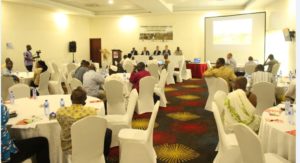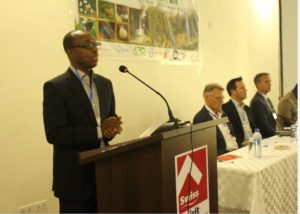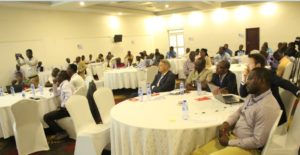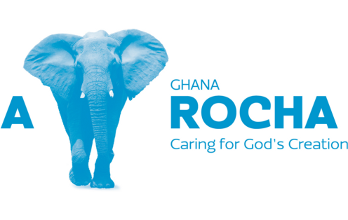TEEB Study: Evaluating the best land use option for Atewa Forest Reserve
 As part of ongoing efforts to enhance the protection status of the Atewa forest under the project: Living Water from the Mountain: Protecting Atewa Water Resources; outcomes of a TEEB study commissioned in 2015 was validated during a workshop at Alisa Hotel in Accra to understand how changes in the Atewa range may affect the future of key forest functions for both upstream and downstream groups, in particular, risks to the quantity and quality of water supply in the river basins(Densu, Ayensu and Birim).
As part of ongoing efforts to enhance the protection status of the Atewa forest under the project: Living Water from the Mountain: Protecting Atewa Water Resources; outcomes of a TEEB study commissioned in 2015 was validated during a workshop at Alisa Hotel in Accra to understand how changes in the Atewa range may affect the future of key forest functions for both upstream and downstream groups, in particular, risks to the quantity and quality of water supply in the river basins(Densu, Ayensu and Birim).
The National Director of A Rocha Ghana, Mr. Seth Appiah Kubi in his address explained the context of the study saying; the valuation study aimed at demonstrating in economic terms, the costs and benefits of current developments in the Atewa range compared to potential alternatives and to support the Government of Ghana in deciding what the most optimal and sustainable management regime would be appropriate for the Atewa Range Forest Reserve.
context of the study saying; the valuation study aimed at demonstrating in economic terms, the costs and benefits of current developments in the Atewa range compared to potential alternatives and to support the Government of Ghana in deciding what the most optimal and sustainable management regime would be appropriate for the Atewa Range Forest Reserve.
Emphasizing on the benefits of the reserve especially in the aspect of water provision for agricultural, domestic and industrial use, Mr. David Kpelle the Business Development Manager at the Forestry Commission, expressed the Commission’s determination and support in ensuring long term sustainable management of the forest reserve. Participants at the validation workshop included representatives from civil society groups, NGOs, Ghana Water Company, EPA, Industry and community members.
 Dr. Pieter Van Beukering, the lead evaluator of the TEEB study from the Institute of Environmental Studies, Netherlands, presented four(4) different forest land use scenarios with its associated medium to long term economic costs and benefits. In the end, the scenario of a National Park and Buffer Zone establishment around the Atewa Forest plus the development of sustainable investments to phase out certain negative land use practices such as illegal logging and mining ranked highest with respect to long term socio-economic gains.
Dr. Pieter Van Beukering, the lead evaluator of the TEEB study from the Institute of Environmental Studies, Netherlands, presented four(4) different forest land use scenarios with its associated medium to long term economic costs and benefits. In the end, the scenario of a National Park and Buffer Zone establishment around the Atewa Forest plus the development of sustainable investments to phase out certain negative land use practices such as illegal logging and mining ranked highest with respect to long term socio-economic gains.
The TEEB study, the first of its kind in Ghana was supported by the Netherlands Committee of IUCN, the Dutch Embassy in Ghana,Ghana Netherlands Wash Program and in close collaboration with the Forestry Commission, the Water Resources Commission, and other global environmental institutions and partners.
